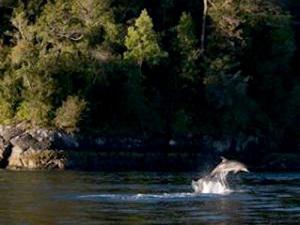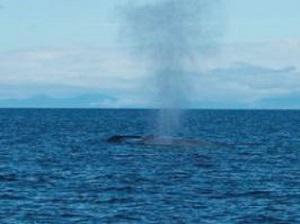José F Zamorano-Abramson
This project aims to set up the first baseline research program dedicated to Chilean Orcas and their habitat in order to establish a long term conservation program through research and education in Chile.

Bottle nose dolphins in the fjords.
In Chile, there is almost no information about Orca biology and ecology, so few things can be said about their current conservation status; in fact, the only information we have is based on anecdotes provided by local people. On the other hand, an increasing human activity such as fishing, aquaculture (especially salmon farms), shipping, and industrial mega-projects in the country represent a potential threat to all marine species, including the Orcas, as well as to the functioning, integrity and sustainability of the marine ecosystem. While working in marine mammal education programs through the country, I realize that the Chilean public is largely unaware that these animals even exist in their waters, and that unfortunately, there are few data available on the environmental effects in Orcas caused by fishing practices in Chilean waters. It is a reason of concern that the richest fishing grounds are also the traditional feeding grounds for Orcas. With a better understanding of historical patterns of the species in the country, and the effect of the interaction with fisheries, areas with a higher probability of finding orcas for future research and conservation plan could be determined.

Blue whale in the fjords.
Orcas, as “umbrella” specie, are indicators of the health of our marine environment. If this predator is removed, dramatic changes will result in diversity and population densities of all the community. Their place at the top of marine food has made them become particularly vulnerable to contaminants and the "predator control policy" is an incentive for killing them. Orcas are suffering the loss of their critical habitat, due to the exponential increase in human activities and associated pollution. Our major concern with their conservation in Chile relies in the extreme importance for industrial fisheries, where Chilean Patagonia is currently one of the most important regions for salmon production/farming in the world. To determine a sustainable way for salmon farms, fisheries and other human activities that interact with the orcas, we first need to establish a historical baseline that will allow us to change public perception of orcas and raise awareness to protect this “sentinel” species. By increasing public and local knowledge and understanding of the species, a positive future may exist for orca/fishermen and salmon farms relationships. This is fundamental for the correct management decisions to ensure the welfare and survival of Orcas and the other species of their ecosystem.